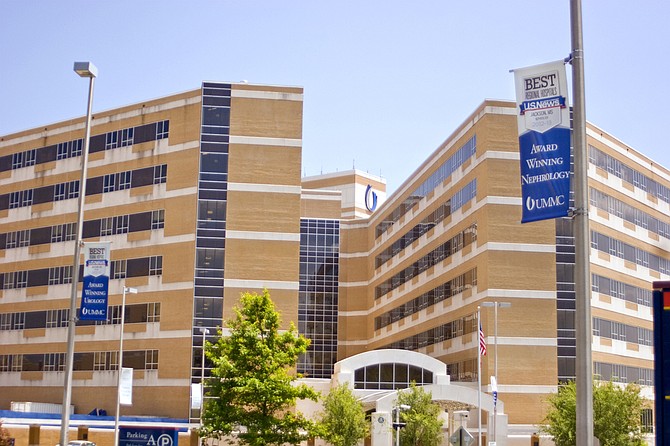JACKSON, Miss. – The University of Mississippi Medical Center is moving into a new stage of COVID-19 response: conducting clinical research and trials on how to treat the disease.
UMMC will launch as many as nine clinical studies in the next two weeks, mostly focused on inpatient treatment strategies for COVID-19.
UMMC’s COVID-19 response has been evolving into new stages as the disease impacts more Mississippians, said Dr. Richard Summers, associate vice chancellor for research.
“We started preparing several weeks ago by making sure we have the necessary PPE [personal protective equipment], then by developing our in-house COVID-19 testing, and now we are moving into the third phase, which is to offer more treatment options,” Summers said.
As the state’s sole academic medical center, Summers said UMMC is well positioned to provide the most advanced treatment options to Mississippians. UMMC will also be inviting other hospitals to refer COVID-19 patients for evaluation and potential inclusion in these trials.
“This is what an academic medical center should do to lead the way in coronavirus response,” he said.
No existing treatments are known to be effective against COVID-19, a novel coronavirus not previously observed in humans. The current standard of care for COVID-19 includes hospitalization and, if needed, supplemental oxygen or ventilation to manage severe disease.
UMMC will be one of 44 sites conducting a trial to study hydroxychloroquine as a treatment for inpatients with COVID-19. UMMC began screening patients for enrollment this week and enrolled its first participant April 14.
Dr. Alan Jones, professor and chair of the Department of Emergency Medicine and clinical lead for COVID-19 response, will lead the UMMC study site.
The study will enroll adult inpatients with confirmed or presumptive COVID-19 infection. Trial participants will receive either hydroxychloroquine or the current standard of care, and then Jones and his team will compare efficacy and safety outcomes for both groups.
Hydroxychloroquine is a Food and Drug Administration-approved treatment for lupus and rheumatoid arthritis. It is also used to treat and prevent malaria in some regions of the world.
“There are reports from uncontrolled trials that this hydroxychloroquine might have a positive effect for patients with COVID-19, but we also know it can have negative side effects,” Jones said. “Our goal is to build a body of scientific evidence that informs what we should do in the future.”
Jones is also working to activate another clinical trial, which will test if the hypertension drug losartan can limit the coronavirus’s ability to bind to cells and cause disease.
Meanwhile Dr. Gailen Marshall, R. Faser Triplett, Sr., M.D. Chair of Allergy and Immunology, will be leading two studies in critical care patients. One trial, which will test a monoclonal antibody as a treatment for severe COVID-19, should be activated later this week.
“In COVID-19, we see the immune system attempt to fight off the virus and the system overreacts, which produces what’s called a cytokine storm, and that can exacerbate the lung disease that occurs with COVID-19,” Marshall said. If effective, the antibodies will block the cytokines and lessen the damage.
Marshall’s other trial, which he hopes will become active next week, will treat critically ill COVID-19 patients with antibodies from patients who have recovered from COVID-19 in order to neutralize the virus.
Several other UMMC physicians are preparing clinical trials related to COVID-19, including tests of both preventive and treatment options.
Marshall, who also serves as executive director of the Mississippi Clinical Research and Trials Center, wants to make it clear that patients who participate in these trials and are assigned to the placebo arm of a clinical trial – meaning they will not receive the test therapy -- will still receive quality care.
“Being in a research study doesn’t mean treatment or no treatment, it means receiving the current standard of care or receiving the standard of care and the test drug,” Marshall said.
He adds conducting these studies now will help UMMC and other institutions prepare for a nearly inevitable return of coronavirus.
“We know that this disease is likely to return in some form or another,” Marshall said. “The purpose of clinical trials is to help us prepare so that we can have more knowledge, treat people more quickly, prevent severe disease and decrease the number of deaths during a future outbreak.”



Comments
Use the comment form below to begin a discussion about this content.
comments powered by Disqus